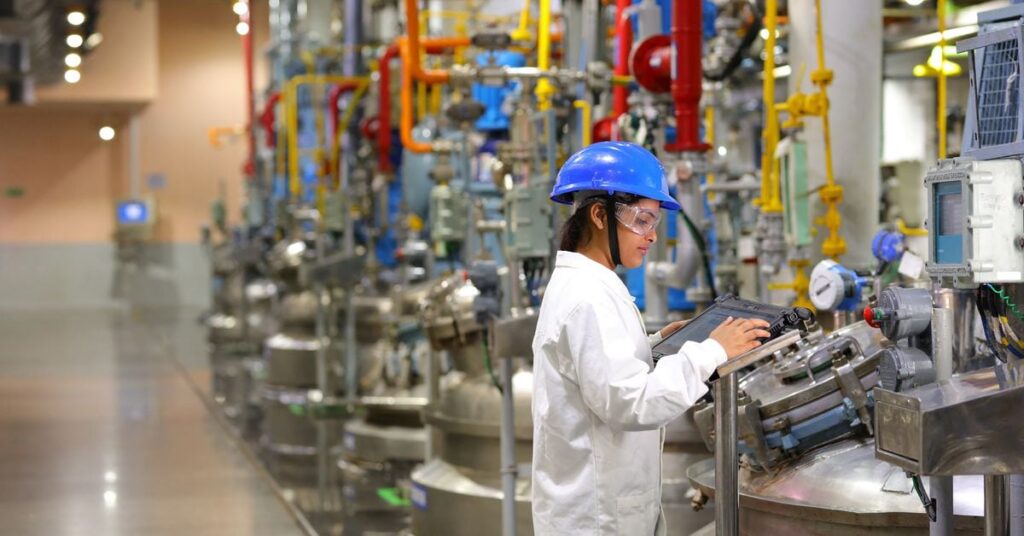LONDON/SHANGHAI/HYDERABAD, Nov 27 (Reuters) – Drugmakers are seeking to limit their reliance on Chinese contractors who produce drugs used in clinical trials and early-stage manufacturing, a move that is benefiting rivals in India, according to interviews with 10 industry executives and experts.
China has for nearly 20 years been the preferred location for a range of pharmaceutical research and manufacturing services due to the low cost and speed offered by contract drugmakers there.
That relationship largely held firm despite a U.S.-China trade war under the Trump administration and supply chain havoc experienced by other industries during the COVID-19 pandemic. But increasing tensions with China have prompted more Western governments to recommend that companies “de-risk” supply chains from exposure to the Asian superpower.
That is leading some biotech companies to consider using manufacturers in India to produce active pharmaceutical ingredient (API) for clinical trials or other outsourced work.
“Today you’re probably not sending an RFP (request for proposal) to a Chinese company,” said Tommy Erdei, global co-head of healthcare investment banking at Jefferies. “It’s like, ‘I don’t want to know, it doesn’t matter if they can do it for cheaper, I’m not going to start putting my product into China’.”
Dr Ashish Nimgaonkar, the founder of Glyscend Therapeutics, a U.S.-based biotech firm testing treatments for type 2 diabetes and obesity in early trials, agreed. “All of the factors over the past several years have made China a less attractive option for us,” he said.
Nimgaonkar told Reuters that when Glyscend issues an RFP later in the development stage of the medicines it has in trials, Indian contract development and manufacturing organisations (CDMOs) would be preferred over Chinese ones.
Four of India’s largest CDMOs – Syngene (SYNN.NS), Aragen Life Sciences, Piramal Pharma Solutions (PIRM.NS), and Sai Life Sciences – told Reuters they have this year seen increased interest and requests from Western pharma companies, including major multinationals.
Sai declined to comment on profit growth but said sales have grown 25%-30% in recent years. The other companies said they reported strong profit growth in the most recent quarter.
Top executives at the firms said some customers want to add India as a second source, in addition to China, for manufacturing. Others are seeking to leave China and even making requests to originate supply chains in India.
The full benefit for these Indian manufacturers will not be immediate, said Peter DeYoung, CEO of Piramal Pharma Solutions.
It will take time for treatments in early development to make it to the market, when contracts would become more lucrative for outsourcing firms like his, he said.
Chinese CDMOs are established makers of biologic drugs, which require a higher threshold of regulatory approval than conventional medicines, said Helen Chen, Greater China Managing Partner at L.E.K. Consulting in Shanghai.
Hiring a new firm for complex work such as biologic manufacturing can take three to five years, she added. “It’s really not something that (companies) just pick up and move like shoes.”
STRONG GROWTH
India is seeking a bigger foothold in the pharma services sector to boost sales and reputation for its $42 billion pharmaceuticals industry.
But concerns over lax oversight persist. Nimgaonkar said Indian CDMOs need to do more to ensure their reputation on quality standards matches Western and Chinese ones.
In February, the U.S. Food and Drug Administration (FDA) warned against using an eye drop made in India linked to the outbreak of a drug-resistant bacteria in the United States that caused one death.
India-based research firm Mordor Intelligence estimates revenue from India’s CDMO industry at $15.6 billion this year compared to $27.1 billion in China. But it estimates revenues from India’s industry will grow, on average, at more than 11% annually over the next five years, compared to about 9.6% for China.
The Indian CDMOs told Reuters that their facilities are routinely inspected by the FDA. An FDA spokesperson declined to comment.
Piramal Pharma has this year received requests from clients for “backward integration to India”, which means that even the most basic raw materials are sourced from the country instead of China, said DeYoung. Piramal buys about 15% of its raw materials from China but is trying to reduce that.
Sai Life Sciences said it almost doubled manufacturing capacity since 2019 and is adding another 25% in the next year or so to meet demand.
Ramesh Subramanian, chief commercial officer of Aragen, a privately-owned Indian firm that has grown from 2,500 to 4,500 employees in the past five years, said revenue growth of 21% last year was partly driven by new contracts with Western biotech firms. Aragen counts seven of the 10 biggest pharma companies as clients, he said, declining to name them.
The shift is particularly evident in drug discovery work for conventional pharmaceuticals.
“New biotechs are deciding to put eggs in both the Indian and China baskets from the start,” Subramanian said.
Reporting by Maggie Fick in London, Andrew Silver in Shanghai and Rishika Sadam in Hyderabad;
Editing by Michele Gershberg and Catherine Evans
: .


